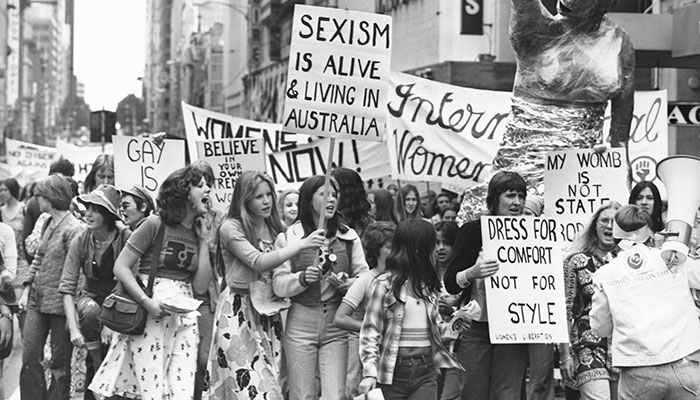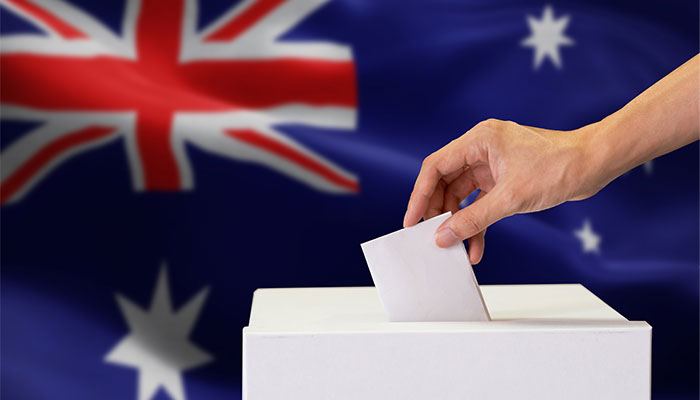In countries where voting is non-compulsory such as the United States, Britain, and EU states, voter apathy or disengagement with politics has become a serious problem. The fewer voters participating in elections, the less representative or accurate the result will be as reflecting the legitimate "will of the people".
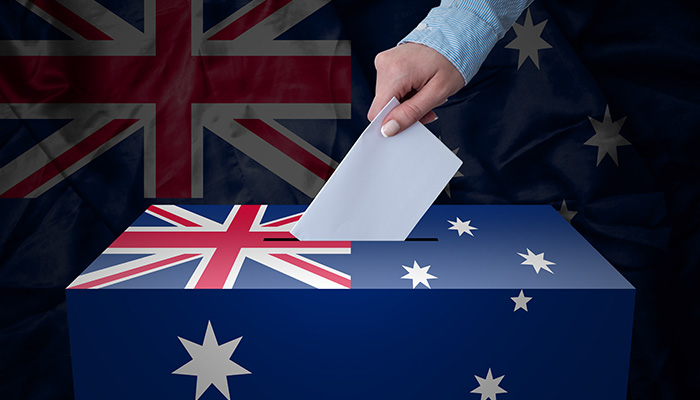
Election fatigue: Australia is one of just 22 nations around the world where voting is mandatory for citizens.
Despite large amounts of money being spent on campaigns and rallies, the United States continues to have one of the lowest voter turnouts among developed democracies (56% in 2016), along with Poland (54%), Latvia (52%), and Switzerland (40%). Belgium, Sweden, and South Korea, on the other hand, boast having the most politically engaged citizens, with impressive voter turnouts at recent elections (89%, 86%, and 77% respectively).
With its compulsory voting system, Australia naturally records a high level of voter turnout (well over 90%) but also a significant number of spoilt or "donkey" votes (where voters register their preferences according to the order of candidates listed on their ballot paper), which can lead to unexpected, even unwelcome, results.
So what are the factors leading to election fatigue? Political scientists generally list voter alienation and voter fatigue as two key causes: voters feeling alienated from the political process and thinking that their vote won’t make a difference; and voter fatigue stemming from too frequent elections or the sense that politicians may override the results and install preferred candidates into leadership positions (the fact that Australia has had 5 Prime Ministers since 2013 – Julia Gillard, Kevin Rudd, Tony Abbott, Malcolm Turnbull, and Scott Morrison – is a case in point).
Australians still have faith in their parliamentary system but are increasingly unhappy with how politicians elected to Parliament conduct themselves in running the country
Given the rise in pre-poll voting in recent state and now federal elections, many observers are speculating whether this suggests that voters have already made up their minds – well before the competing parties’ political campaigns reach fever pitch – and just want to get voting out of the way before polling day.
Are there other factors at play in the widespread sense of election fatigue? A disturbing trend in Australian politics has been the rise of voter mistrust of politicians coupled with politicians’ seeming indifference towards this mistrust – a phenomenon that has been described as "democratic malaise", an angry frustration with existing democratic politics.
This trend has been apparent in Western democracies for decades but has only recently become manifest in Australia. After the 2016 election, voter satisfaction with the Australian political system was at its lowest since the Whitlam dismissal in 1975; no Australian prime minister has scored above 5/10 on voter satisfaction scores since 2010 (when Julia Gillard replaced Kevin Rudd, who was the last PM to enjoy high approval ratings after his election in 2007).
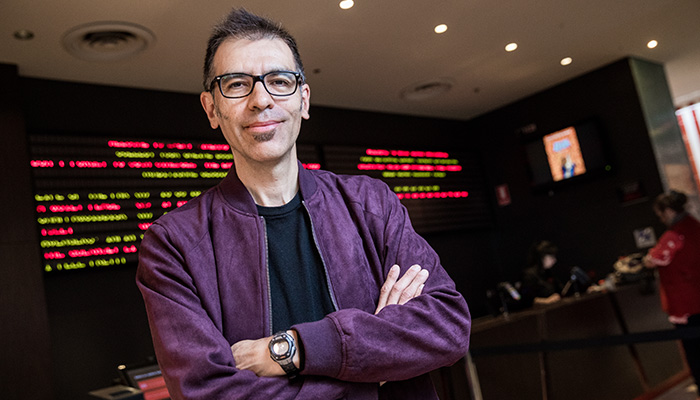
Media monitoring: Associate Professor Robert Sinnerbrink says the way social media algorithms work mean people are being served content which reinforces their pre-existing attitudes, rather than posts which challenge their views.
Other surveys point to widespread dissatisfaction with the political class. Australians still have faith in their parliamentary system but are increasingly unhappy with how politicians elected to Parliament conduct themselves in running the country.
Politicians are regarded as untrustworthy, self-serving, and ignoring the views of the public, and far too focused on maintaining power, internal factional politics, and pandering to politically influential lobby groups and media "influencers". A familiar picture according to media reports and opinion polls but also disturbing for what it reflects about the health of our democracy today.
'Alarming' social media trends
Add to this the influence of the 24-hour media cycle, social media-driven opinion shaping, and the increasing polarisation of political views via internet "echo chambers", and we can start to understand why our democratic system is showing signs of distress and distortion.
The role of social media cannot be underestimated - the recent revelations of attempts to influence voter opinions via the harvesting of social media data and targeting of niche groups via hot-button political messaging (such as the Facebook/Cambridge Analytica scandal) point to some alarming trends.
Extreme political views being 'normalised'
Here we could mention the election of US President Donald Trump, despite media poll and political pundit predictions, and the surprise victory of the Brexit Leave campaign in the UK, but also the increasing polarisation of political attitudes leading to voter apathy on the one hand and fractious political conflict on the other.
This includes the "normalisation" of extreme political views (the "Overton window") that had remained outside public discussion but are now permissible ideas for politicians to raise within mainstream political discourse (the rise of alt-right ideology, for example).
One factor in this worrying situation is the information "filtering effect" generated by social media: the generation of epistemic "bubbles" caused by social media algorithms and (easily manipulated) internet search engines. Media users are provided with selective information based on their previous search history and social media interests, so tend to have their pre-existing attitudes and ideological views reinforced and hardened rather than questioned or expanded.
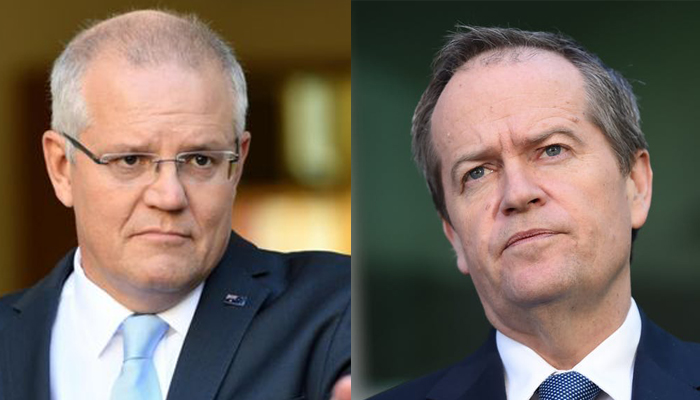
Going head to head: The countdown to polling day has been reflected in Scott Morrison and Bill Shorten's campaigning as they've ramped up their promises.
The "information bubbles" that arise as a result can be solidified into media "echo chambers" which actively select, filter, or exclude competing viewpoints in order to tailor messages designed to gratify and reconfirm their users’ biases or convictions.
The new electronic (social) media landscape seems less concerned with the pursuit of truth or questioning of power than the profitable harvesting of information and generation of mass confirmation biases. No wonder that contemporary politics has become more polarised, driven by shock tactics, conspiracy theories, or grubby personal attacks on politicians.
- Climate wars: what you need to know before you vote on Saturday
- Facebook and Instagram won't change voters' minds
- The Budget: this year's winners and losers
In our "post-truth" world, political apathy competes with political polarisation. As a result, the possibility of democratic debate based on reliable information, judicious reporting, and informed public discussion becomes ever more difficult to tell from cynical media spin, echo chamber agitation, or insidious "fake news".
What's the solution?
So what it to be done? As philosopher Thi Nguyen remarks, given the ease with which epistemic bubbles are created in the social media world, and the ways these are readily turned into influential echo chambers defining many voters’ world views, it can be as hard to leave an echo chamber as it is to flee a cult.

Like, comment, share?: There needs to be more critical scrutiny of media sources, says Assoc Prof Sinnerbrink.
Our best bet is to push for increased public education of voters and media users (which means all of us) as to the dangers and distortions affecting today’s political media ecology. We need to push political parties to maintain a genuine diversity of competing viewpoints and insist on critical scrutiny of media sources and manipulative rhetoric in response to the hidden strategies of social media usage.
Internet giants such as Google and Facebook but also politically partisan media outlets creating echo chambers must be held to account in relation to exploitative data sharing and pernicious attempts at influencing the political views of the public.
Focus on what matters most
In the age of what author and scholar Shoshana Zuboff has called "surveillance capitalism" - the illegitimate use of information harvesting as a means of shaping consumer behaviour and exercising social control - this has become a major challenge not only for citizens, media outlets, and political parties but for the health of our democracies across the globe.
As the final push to grab voter attention makes itself felt this week, perhaps we should all make an effort to overcome our election fatigue and focus on what matters – not only voting because we must but with considered attention towards the strategies of political media messaging and ethical reflection on the kind of democracy we want Australia to become.
Dr Robert Sinnerbrink is Associate Professor of Philosophy and an ARC Future Fellowship recipient.

